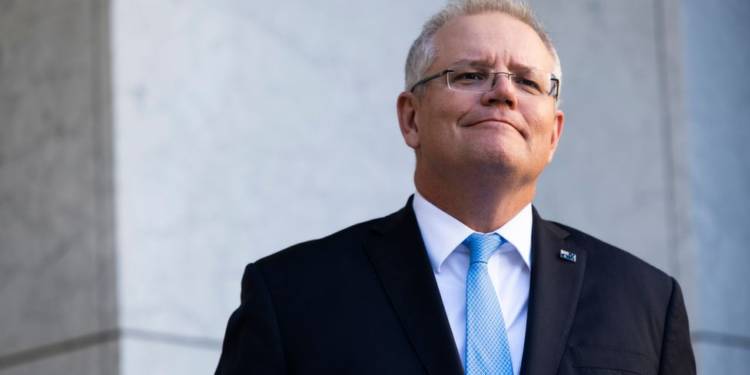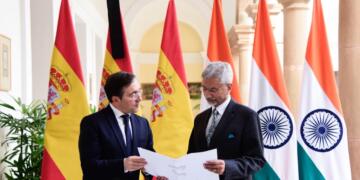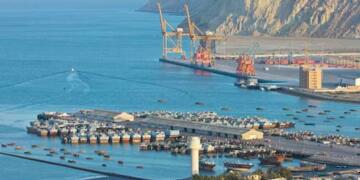China thrives on countries with a lack of political stability. Australia is a case in point which until very recently was grossly overdependent on China. Australia has a different kind of political regime which allows only three-term tenures in between elections. Moreover, Australia is no stranger to internal political strifes which often means dethroning of serving Prime Ministers.
Between 2010 and 2015, for example, Australia saw five different Prime Ministers in as many years. This made Australia a perfect destination for China. The Chinese Communist Party (CCP) could easily infiltrate into Australia’s political system for making commercial gains, and there was no one firmly in place to keep a tab on China’s soft intrusions and manoeuvres into Australia.
China took control of everything in Australia from its Universities to its power sector and water resources. With the aid of pro-China elements down under, Beijing also got involved in Australian infrastructure projects. Since there was no strong and stable regime in Canberra, there was no real check on the growing Chinese influence.
Some sense of political stability, however, came in with Malcolm Turnbull who remained in office for almost three years between 2015 and 2018. But then he too was removed from office by his own party in 2018. And then came Scott Morrison, the man who would lend political stability to Canberra and kick China out of Australia.
When he assumed office after Turnbull’s removal, not many expected that Scott Morrison would be able to continue beyond the 2019 Federal elections. But he did lead the Liberal/ National coalition to an astounding victory during the 2019 Federal polls. Morrison catapulted the incumbent coalition to a ‘miracle’ win and in the process became the tallest Australian political leader capable of giving Canberra a certain direction.
Placed firmly in his office, Morrison has started cracking down on the excessive Chinese influence down under. Morrison is fighting an ideological battle with China. He knows that Beijing wants Australia to look more and more like China. But Scott Morrison is not letting China export its authoritarian characteristics to the democratic Commonwealth of Australia.
Therefore, when Scott Morrison government started criticising the Chinese vet markets and even demanding an international probe into the Wuhan Institute of Virology, he knew that there would be consequences from Beijing, and within Australia. But Morrison made it clear, “We are an open-trading nation, mate, but I’m never going to trade our values in response to coercion from wherever it comes.”
Morrison has now taken the fight onto an entirely new level. Recently, the Scott Morrison government announced that it will bring a Foreign Relations Bill, which would give Australia’s Federal government the power to review, prevent or terminate all agreements signed by the State and Territory governments, Local Councils and even Public Universities with foreign governments.
Morrison is, therefore, taking control of Australia’s foreign policy with intent to kick China out of Australia. Canberra has made it clear that China can no longer infiltrate into Australia through political manipulations and commercial onslaughts.
Moreover, while China is looking to punish Australia with unilateral actions like reducing the outflow of Chinese students into Australian Universities and imposition of tough tariffs on Australian products, Canberra is itself looking to create new supply chains.
Therefore, Canberra is boosting its trade ties with the other Asian giant- India. Australia wants to attract more Indian citizens and divert its supply chains towards India and thereby cut dependence on the Dragon. Scott Morrison understands that Canberra must remain closer to New Delhi instead of Beijing giving the shared values of democracy and international comity between India and Australia.
Morrison is also partnering with Japan and India to kick China out of global supply chains and create a new geo-economic normal.
Within Australia, Scott Morrison is facing pushback from certain elements for his anti-China rhetoric. However, the popular opinion and the global perception largely support Morrison’s tough China policy.
Australia’s former Prime Minister Kevin Rudd, for example, said, “What I find puzzling is the Australian Government’s predisposition to take out the megaphone in every conceivable opportunity to take the existing structural difficulties in the Australia-China relationship and magnify them even further.”
Similarly, Australian politicians like Labor MP and shadow Agricultural Minister, Joel Fitzgibbon or Victoria Premier Daniel Andrews, have been insisting upon maintaining friendly Sino-Australian ties amidst Scott Morrison’s bid to decouple from China.
Scott Morrison, however, remains unfettered. He is one of those rare world leaders to have seen through china’s so-called ‘peaceful rise’. He understands that China is a threat to the democratic world and continues to look towards Beijing as Canberra’s strategic rival. Therefore, he is playing a keen role in reinvigorating the QUAD- an informal alliance of the US, Australia, India and Japan to take on China within the Indo-Pacific region.
Scott Morrison is the man who gave Australia a much-needed political stability and with a firm position in Canberra, he knows how to take on China. And therefore, Scott Morrison has become China’s arch-nemesis.




























